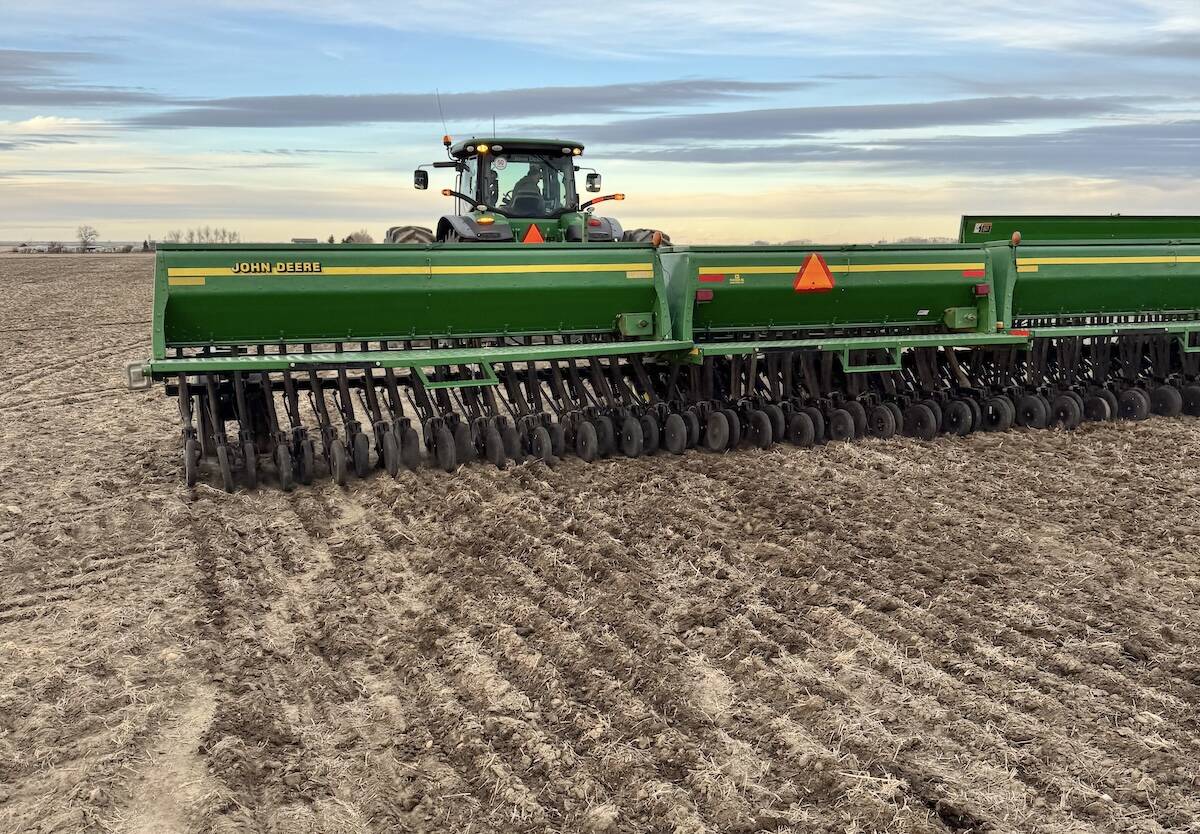Canada’s federal government will allow the acquisition of major Canadian grain firm Viterra by one of the world’s biggest grain industry players, but not without conditions.
Federal Transport Minister Anita Anand on Tuesday announced the government’s decision to approve Viterra’s acquisition by U.S.-based Bunge, the ‘B’ in the ‘ABCD’ group of the world’s most influential grain trading firms.
“This decision underscores the importance of promoting economic growth in Canada, while maintaining robust oversight to protect competition and the public interest,” Anand said in a statement.
Read Also

Southern Alberta farms explore ultra-early seeding
Southern Alberta farmers putting research into practice, pushing ahead traditional seeding times by months for spring wheat and durum
The provisos Ottawa attached to the deal will “help ensure that the acquisition will not have a negative impact on competition in Canada’s grain and oilseed sector, notably for grain purchasing in Western Canada and the sale of canola oil in Central and Atlantic Canada,” the government said Tuesday.
Among the list of over two dozen conditions, the merged firm will be ordered to divest six specific Prairie inland grain elevators, including one each from Bunge and Viterra in northeastern Saskatchewan and four Viterra elevators across southern Manitoba.
READ MORE: Stakeholders react to Bunge-Viterra merger approval
As per a federal order-in-council dated Jan. 9, the elevator sales are meant to address “competition concerns with respect to canola seed origination” in the areas around Bunge’s canola crush plants at Nipawin, Sask. and Altona, Man. For two years after the deal closes, the merged firm will also not be able to buy any elevators that accept canola within 250 km of those two plants without federal approval.
The elevators to be sold include Viterra’s Coulter elevator at Winnipeg, its Tucker elevator at Portage la Prairie and its elevators at Beausejour and Fannystelle, Man. — plus its Valparaiso, Sask. elevator, between Melfort and Tisdale, and Bunge’s Dixon, Sask. elevator just west of Humboldt.
Ottawa’s terms also call for “strict and legally binding controls” on Bunge’s existing minority stake in Prairie grain handler G3, “to ensure Bunge cannot influence G3’s pricing or investment decisions.”
Among those controls, Bunge’s directors at G3 will have to either resign or “otherwise be removed” and replaced with “independent” directors to be identified by a third-party executive search firm and approved by the government.
Ottawa will also require a “price protection program for certain purchasers of canola oil in central and Atlantic Canada,” meant to “safeguard fair pricing and market stability” for customers in those regions who are only able to receive canola oil by truck.
The approval also commits the merged company to keep Viterra’s head office in Regina, with a full-time head count of at least 200 staff, for at least five years following the close of the deal, and to invest “at least” $520 million in Canada within the next five years.
Those investments would include at least $500 million in capital expenditures on the merged firm’s Canadian elevators, terminals and facilities; at least $15 million over five years in contributions to charities or programs in Canadian communities where the merged firm operates; and at least $5 million over five years supporting regenerative agriculture programs in Canada.
Bunge’s merger proposal, publicly announced in mid-2023, has since then drawn concerns from Canada’s Competition Bureau, which warned of “substantial anti-competitive effects.”
Several Prairie grain groups separately commissioned a University of Saskatchewan study predicting billions of dollars in producer losses and increased costs for grain export services due to resulting market concentration.
Transport Canada announced in September 2023 it would conduct the government’s “public interest assessment” of the Bunge-Viterra deal, specifically looking at “how the acquisition would impact competition in the transportation and agricultural sectors.”
Viterra first formed in 2007 in a merger of Saskatchewan Wheat Pool with Agricore United — the latter having formed in a 2001 merger of the former Alberta and Manitoba wheat pools with another former Prairie grain co-operative, United Grain Growers (UGG).
The Regina-based firm went international in 2009 with a deal for Australia’s ABB Grain, then was majority-acquired by Glencore in 2012, becoming Glencore Agriculture before rebranding as Viterra internationally in 2020. It expanded its U.S. footprint last year with a takeover of grain firm Gavilon.
Bunge formed as a trading company in Amsterdam in 1818, expanding to Argentina in 1884, Brazil in 1905 and North America in 1918, moving its global headquarters from Brazil to the U.S. in 2001, when it became a publicly traded company.
Bunge’s stake in Winnipeg-based G3 was acquired through a joint venture with a Saudi state grain firm in 2015, which bought the assets of the privatized Canadian Wheat Board.
















